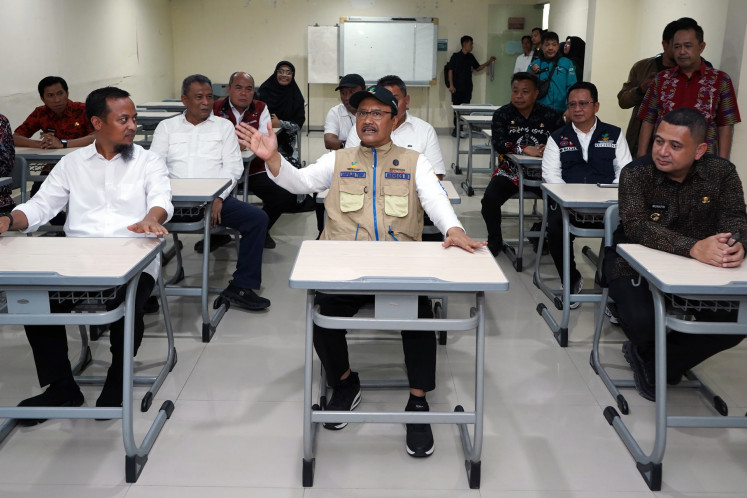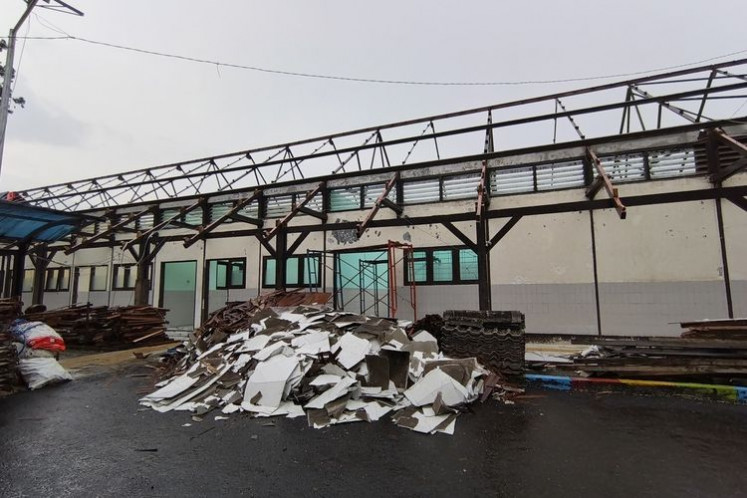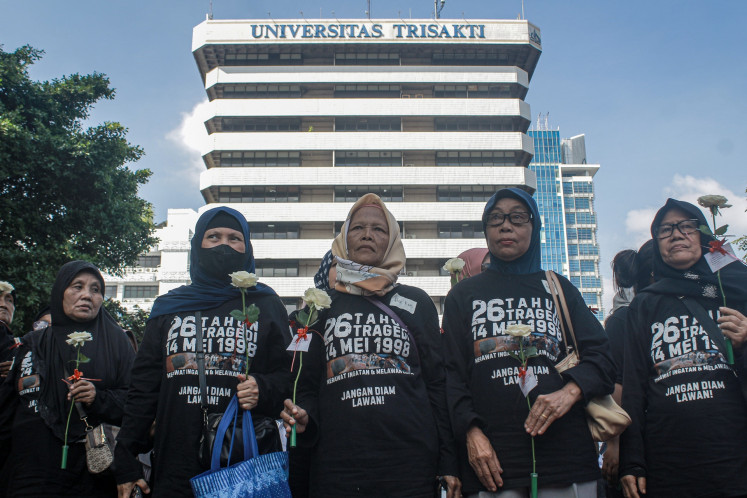Collaboration key to achieving global consensus on sustainable palm oil
Achieving a global consensus on sustainable palm oil requires robust collaboration among various stakeholders, an international conference heard on Friday
Change text size
Gift Premium Articles
to Anyone

A
chieving a global consensus on sustainable palm oil requires robust collaboration among various stakeholders, an international conference heard on Friday.
The industry currently has a variety of sustainability standards, a situation that highlights the importance of producing harmonized standards, participants told the 2018 International Conference on Oil Palm and Environment (ICOPE) held in Nusa Dua, Bali.
The message was conveyed at a session of the conference, which ended on Friday, titled “Toward a global consensus on palm oil sustainability standards”, which was joined by European Union Delegation to Indonesia Michael Bucki, Roundtable on Sustainable Palm Oil (RSPO) Indonesia director of operations Tiur Rumondang, Indonesian Sustainable Palm Oil (ISPO) head of secretariat Azis Hidayat, Rainforest Alliance Indonesia cofounder Stephen Krecik and International Sustainability and Carbon Certification (ISCC) representative Andras Feige.
ICOPE gathered more than 400 participants from 30 countries in discussions on how science and technology could support sustainability in the palm oil industry.
Achieving sustainable palm oil requires the prevention of environmental degradation and improving the livelihoods of oil palm plantation workers and smallholder farmers.
The five pillars of sustainable oil palm industry are the replanting of old and unproductive oil palm plantations, increasing productivity without massive expansion, clearing land without burning, implementing eco-friendly pest control and ensuring social and economic justice for smallholders.
The oil palm industry itself is the second-largest contributor to export earnings in Indonesia, the world’s largest palm oil producer.
In a press statement issued by ICOPE, Krecik said a consensus on sustainability standards would enhance “collaborative learning” to add value to palm oil products. “A standard of sustainability is equal to reputation,” said Krecik.
It is increasingly important for more people to get involved in discussions on a global consensus toward sustainability, said Bucki.
“We need collaboration, not competition,” said Bucki. “There is ample room for us to grow and to improve the current conditions.”
Achieving a global consensus on sustainability needs a combination of various international standards, said Tiur. “We have to examine similarities among the various standards to combine them into one set of standards. This is a challenge,” she said.
Tiur said the RSPO was ready to incorporate standard values into the ISPO and that it was committed to improving its own standards by gathering insights from stakeholders.
Meanwhile, 2018 ICOPE chairman JP Caliman made a special mention of alternative solutions for sustainable small-scale palm oil farming, highlighting a new trend that has seen an increasing number of initiatives to support smallholders.
“What should be done to achieve sustainable [smallholder] farming involves the government and technology [providing access to] funding and the market. Solutions offered should consider smallholders’ aspirations and there should be alternative models,” he said, emphasizing the importance of a multidisciplinary research.
Prior to Friday’s session, officials and environmentalists addressed the need to incorporate innovation into the efforts to achieve a sustainable palm oil industry and stressed how “negative campaigns” against the industry, which have labeled it as environmentally unfriendly and unsustainably managed, have threatened Indonesian oil palm products.
Coordinating Economic Minister Darmin Nasution said in his opening remarks on Wednesday that negative campaigners “neglect to consider that the government also needs to improve the welfare of its people by creating jobs and pushing the volume of exports”.
“These kind of groups only see environmental issues partially and not holistically,” Darmin said.
On Thursday, World Wildlife Fund (WWF) Indonesia director of policy, sustainability and transformation Aditya Bayunanda said Indonesia, as a major player in the industry, should conduct more research into palm oil to achieve sustainability.









